DESMOND MPILO TUTU (7 OCTOBER 1931 – 26 DECEMBER 2021)
A timeline of a life well lived in service of the people
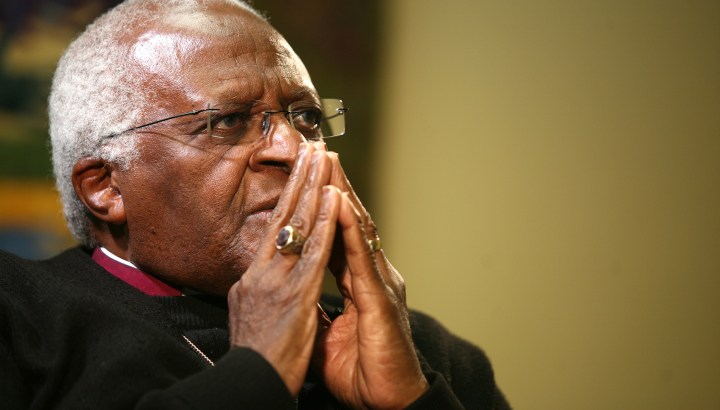
For more than three decades, Desmond Tutu dedicated his life to speaking truth to power.
Key dates in the life of cleric and activist Desmond Tutu:
1931 – Desmond Tutu is born in Klerksdorp, a town about 170km to the west of Johannesburg.
1943 – Tutu’s Methodist family joins the Anglican Church.
1947 – Tutu falls ill with tuberculosis while studying at a secondary school near Sophiatown, Johannesburg. He befriends a priest and serves in his church after recovering from illness.
1948 – The white National Party launches apartheid in the run-up to the 1948 national elections. It wins popular support among white voters who want to maintain their dominance over the Black majority.
1955 – Tutu marries Nomalizo Leah Shenxane and begins teaching at a high school in Johannesburg where his father is the headmaster.

SOUTH AFRICA – 8 September 1977: Bishop Tutu with his wife Leah. (Photo by Gallo Images / Sunday Times / Joe Sefale)
1958 – Tutu quits the school, refusing to be part of a teaching system that promotes inequality against Black students. He joins the priesthood.
1962 – Tutu moves to Britain to study theology at King’s College London.
1966 – Tutu moves back to South Africa and starts teaching theology at a seminary in the Eastern Cape. He also begins making his views against apartheid known.
1975 – Tutu becomes the first Black Anglican Dean of Johannesburg.
1980 – As general secretary of the South African Council of Churches, Tutu leads a delegation of church leaders to Prime Minister PW Botha, urging him to end apartheid. Although nothing comes of the meeting, it is a historical moment, where a Black leader confronts a senior white government official. The government confiscates Tutu‘s passport.
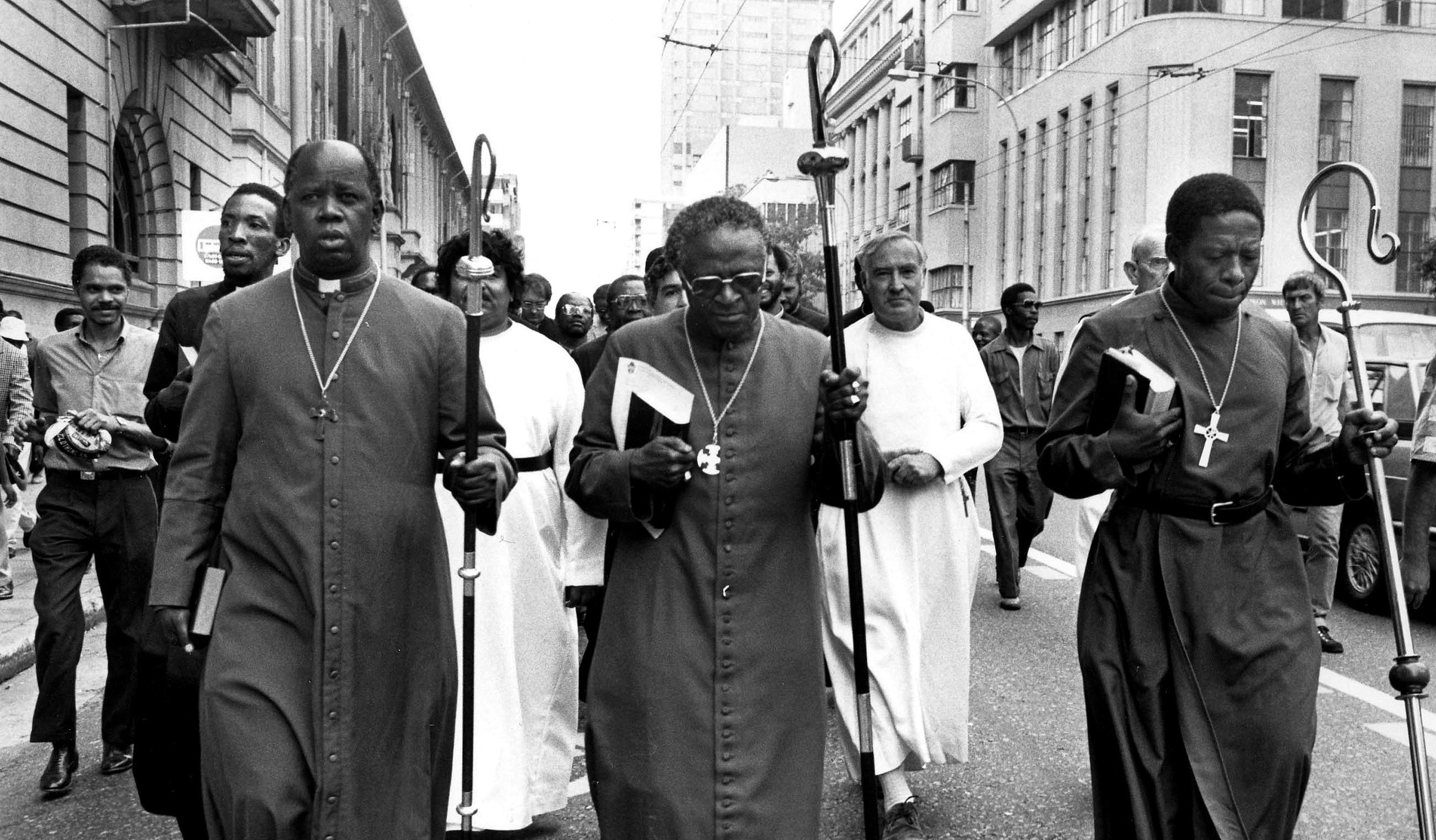
JOHANNESBURG, SOUTH AFRICA – APRIL 03: Bishop Desmond Tutu, the Anglican Bishop of Johannesburg, flanked by Bishop Sigisbert Ndwandwe (left) and Bishop Simeon Nkoane, leads a protest through the streets of Johannesburg on April 3, 1985 in Johannesburg, South Africa. (Photo by Gallo Images/ Rand Daily Mail/Arena Holdings/Robert Tshabalala)
1984 – Tutu is awarded the Nobel Peace Prize for his efforts to bring about the end of white minority rule.
1985 – Tutu becomes the first Black Bishop of Johannesburg. He publicly endorses an economic boycott of South Africa and civil disobedience as a way to dismantle apartheid.
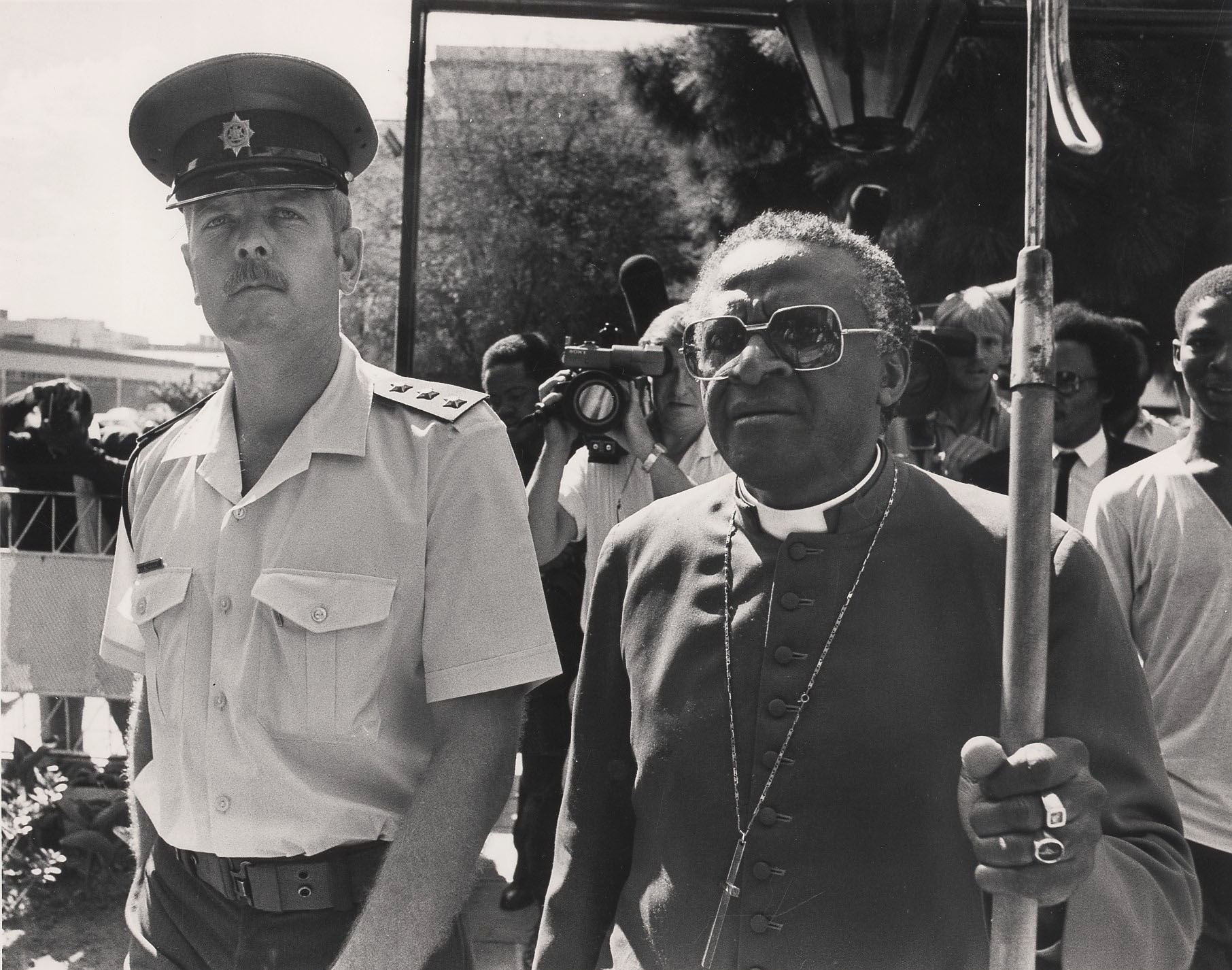
JOHANNESBURG, SOUTH AFRICA – May 2, 1986: An SAP officer escorts Bishop Tutu to the officer in command in Vredefort to confirm Bishop Ndwandwe. (Photo by Gallo Images / Business Day / Walter Dhladhla)
1986 – Tutu becomes the first Black person appointed as Bishop of Cape Town and head of the Anglican Church of the Province of Southern Africa. With other church leaders he mediates conflicts between Black protesters and government security forces.
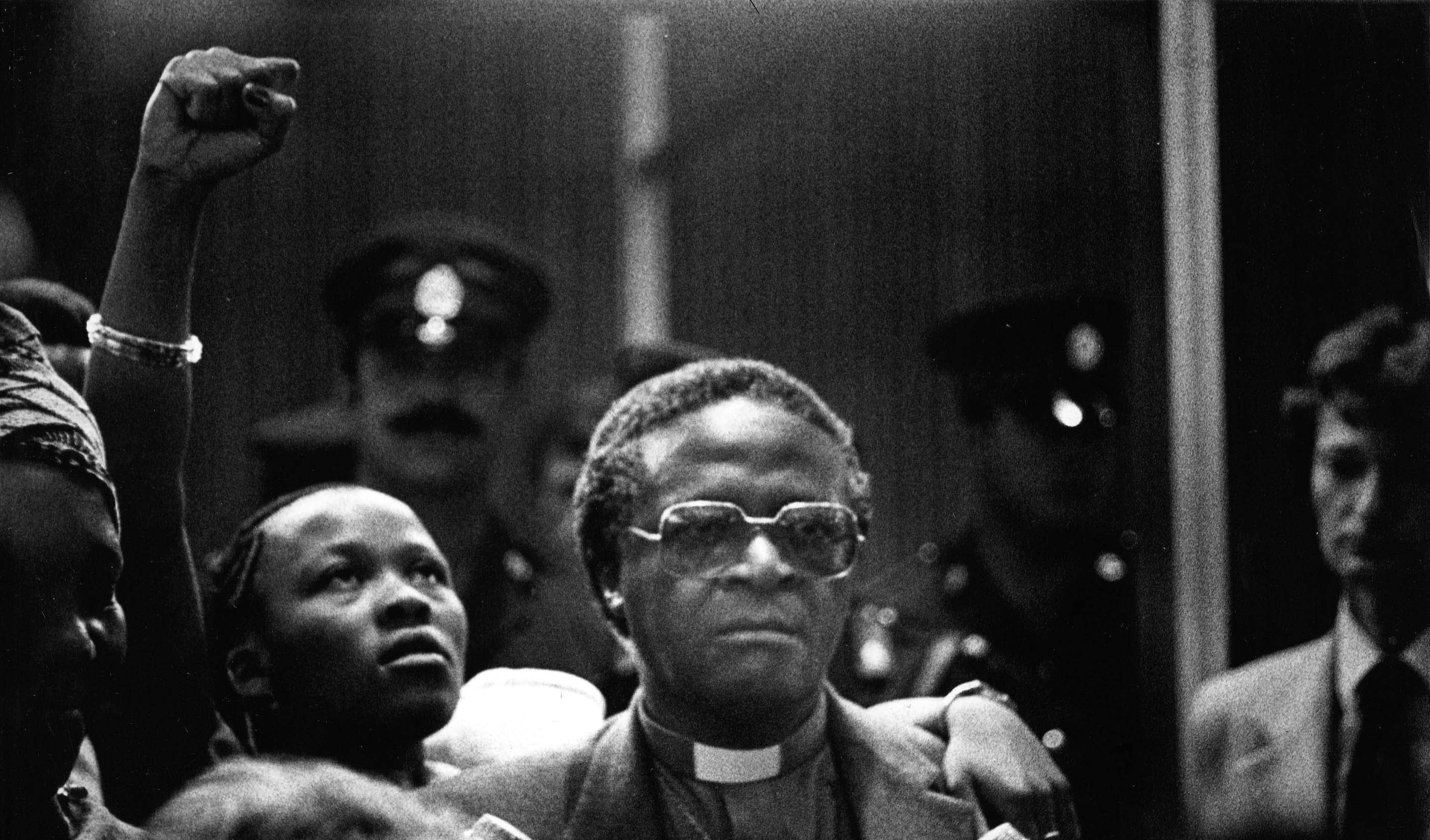
JOHANNESBURG, SOUTH AFRICA – 9 April 1981: Bishop Tutu at Jan Smuts Airport, returning from his trip to the UN. (Photo by Gallo Images / Avusa / Rene Oosthuisen)
1990 – State President FW de Klerk unbans the African National Congress (ANC) and announces plans to release Nelson Mandela from prison.
1991 – Apartheid laws and racist restrictions are repealed and power-sharing talks start between the state and 16 anti-apartheid groups.
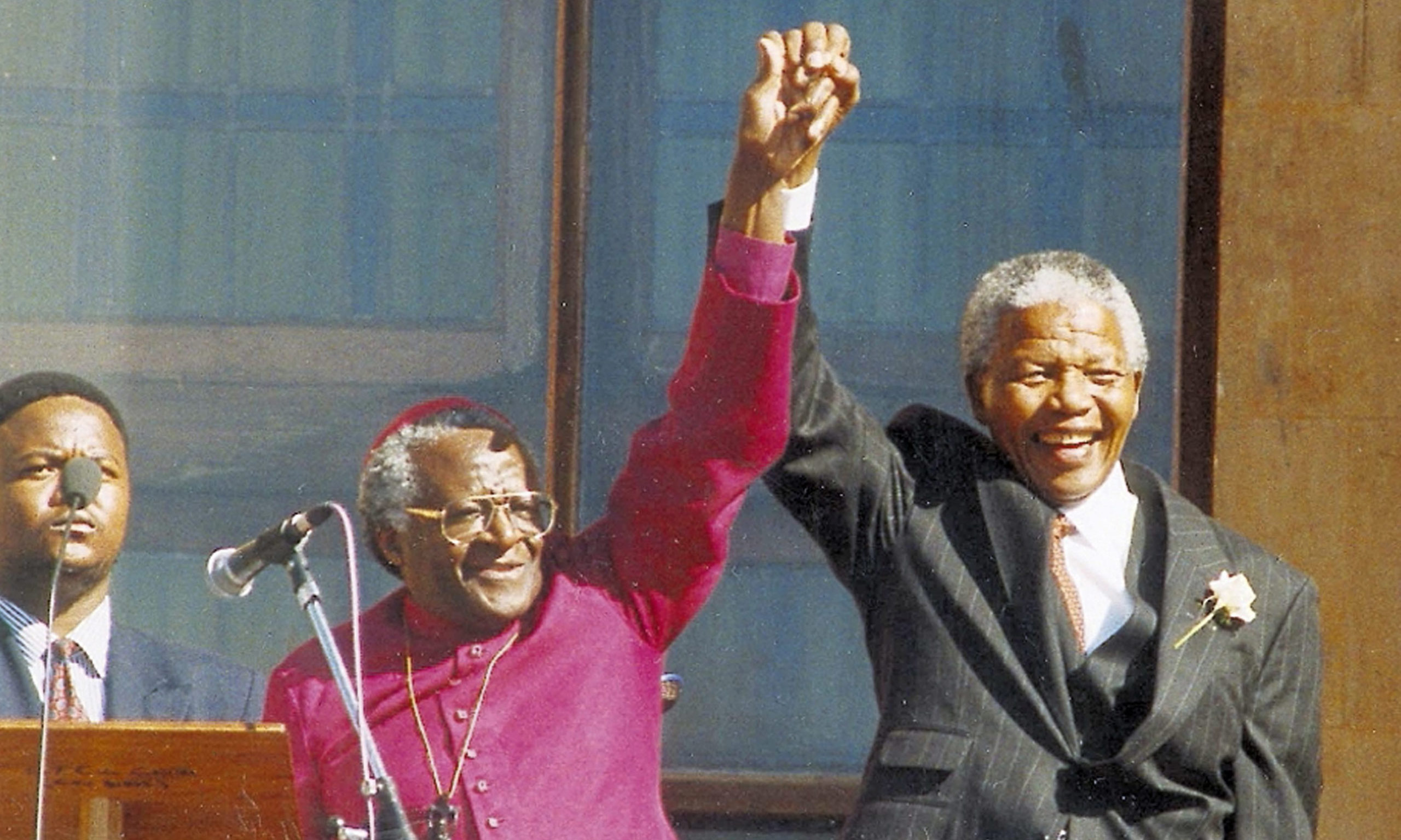
SOUTH AFRICA, April 2004: Nelson Mandela with Archbishop Desmond Tutu. (Photo by Gallo Images/Sunday Times)
1994 – After Mandela sweeps to power at the helm of the ANC in the country’s first democratic elections, Tutu coins the term “Rainbow Nation” to describe the coming together of various races in post-apartheid South Africa.
1994 – Mandela asks Tutu to chair the Truth and Reconciliation Commission that was set up to listen to, record and in some cases grant amnesty to perpetrators of human right violations under apartheid.
1996 – Tutu retires from the church to focus solely on the commission. He continues his activism, advocating equality and reconciliation, and is later named Archbishop Emeritus.
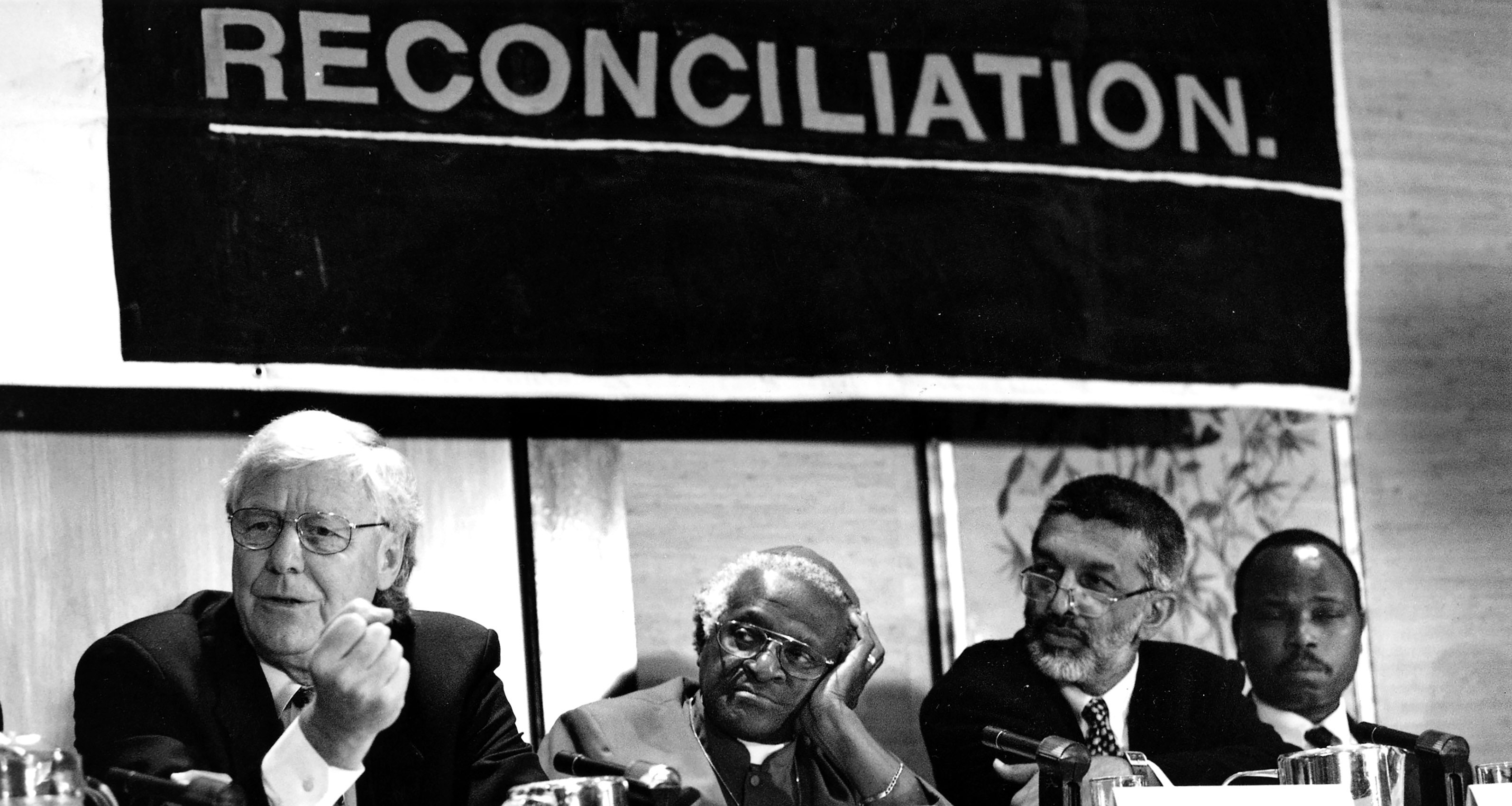
JOHANNESBURG, SOUTH AFRICA – 11 November 1997: Dr Alec Boraine, TRC deputy chairperson, and Archbishop Desmond Tutu (chairperson) at a TRC hearing. (Photo by Gallo Images / Business Day / Lori Waselchuk)
1997 – Tutu is diagnosed with prostate cancer. He has since been hospitalised to treat recurring infections.
2011 – The Dalai Lama inaugurates the annual Desmond Tutu International Peace Lecture but does so via satellite link after the South African government denies the Tibetan spiritual leader a visa to attend.
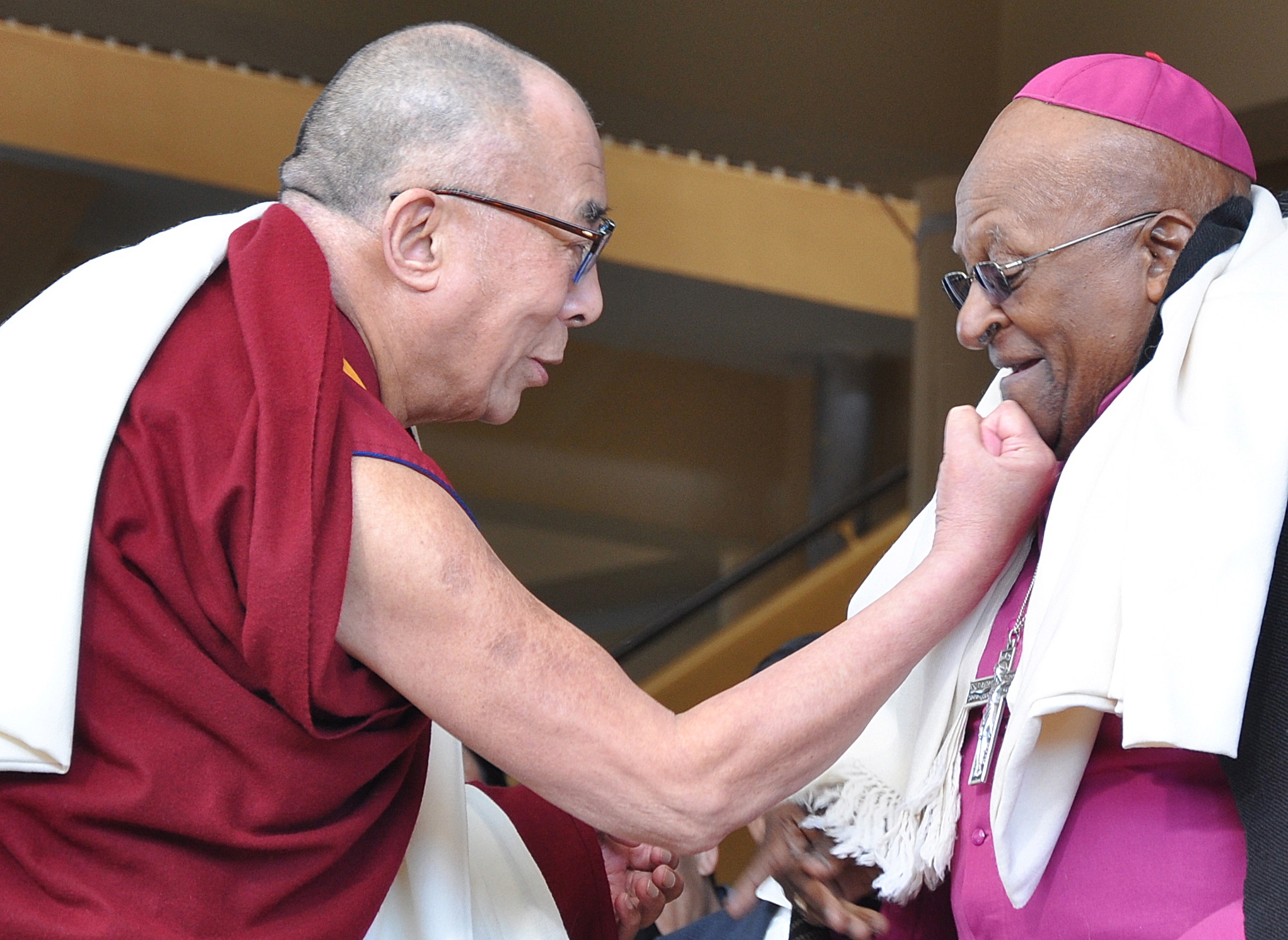
Tibetan spiritual leader the Dalai Lama greets South African Archbishop Desmond Tutu at the Tibetan Buddhist Temple in Dharamsala, Himachal Pradesh, India, on 10 February 2012. EPA/STR
2013 – Tutu makes outspoken comments about the ANC. He says he will no longer vote for the party because it had done a bad job addressing inequality, violence and corruption.

CAPE TOWN, SOUTH AFRICA – 27 April 1994: Archbishop Desmond Tutu votes at the Uluntu Centre in Gugulethu, Cape Town, in South Africa’s first democratic elections. (Photo by Gallo Images/Oryx Media Archive)
2013 – Dubbed “the moral compass of the nation”, Tutu declares his support for gay rights, saying he would never “worship a God who is homophobic”.
2021 – A frail-looking Tutu is wheeled into his former parish at St George’s Cathedral in Cape Town, which used to be a safe haven for anti-apartheid activists, for a special thanksgiving service marking his 90th birthday.
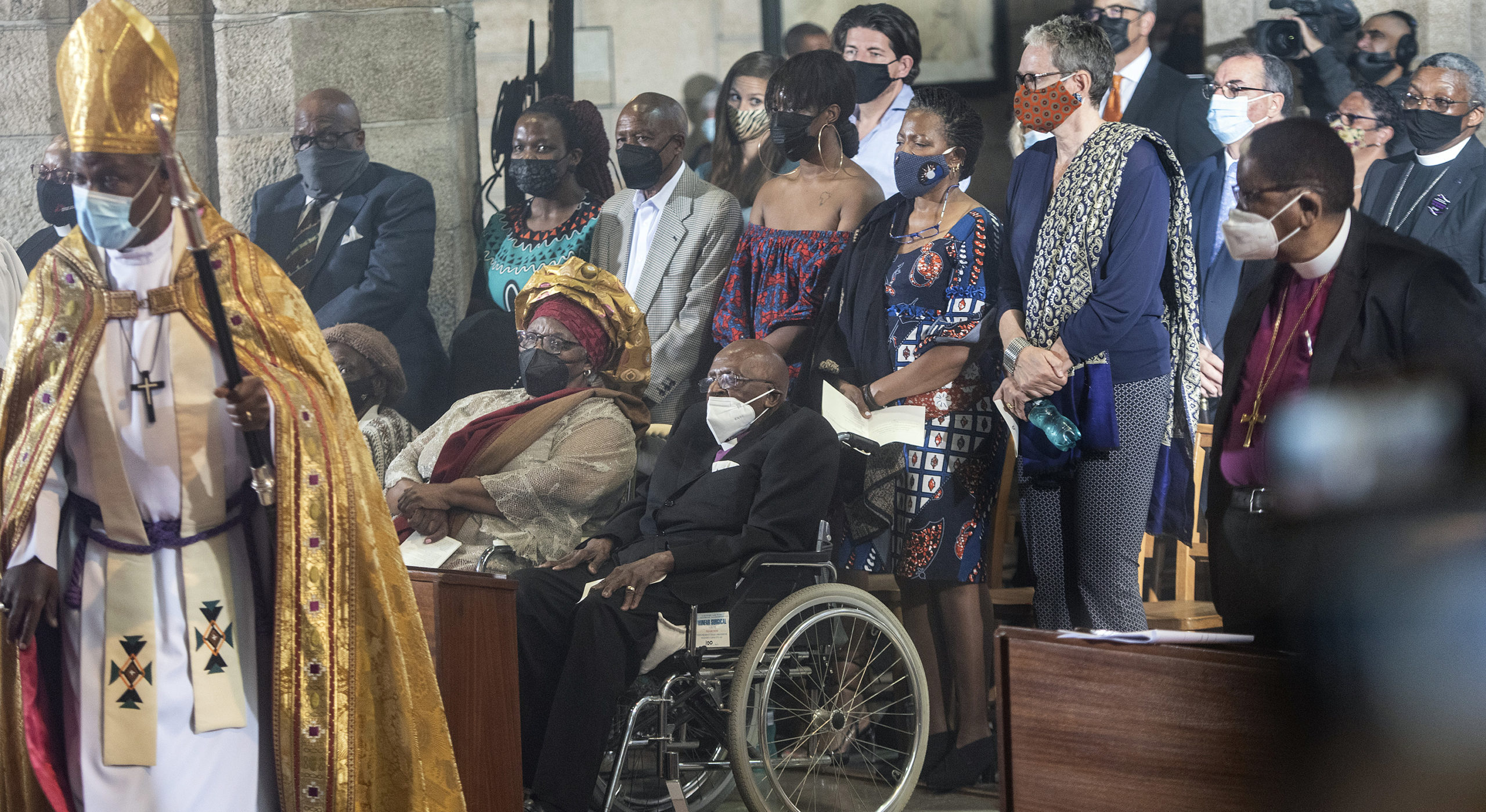
Archbishop Emeritus Desmond Tutu at his 90th birthday Eucharist service at St George’s Cathedral in Cape Town. (Photo: Gallo Images / Brenton Geach)
Dec 26, 2021 – Tutu dies in Cape Town, aged 90.
(Reporting by Alexander Winning and Wendell Roelf; Editing by James Macharia Chege, Andrew Heavens and William Mallard)



















 Become an Insider
Become an Insider
Comments - Please login in order to comment.